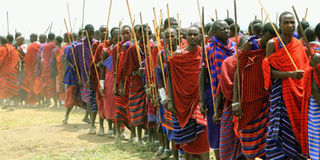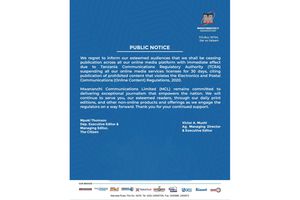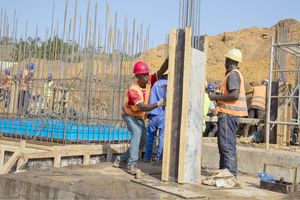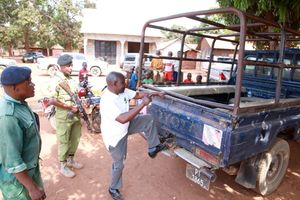How Maasai community has warmed up to politics

Maasai community
What you need to know:
Wherever you visit within Maasailand, you will notice them gathered in small groups talking about the General Election and their fate. Saint Thomas Hospital area in Arusha is one of such areas where members of the pastoral-community-turned-mineral-dealers from Mererani township in Simanjiro District, Manyara Region, gather to sell or buy gemstones.
Arusha. A few years ago, members of the Maasai community rarely discussed politics, but in the countdown to the Sunday General Election, most of them say they cannot wait to see change in Tanzania.
Wherever you visit within Maasailand, you will notice them gathered in small groups talking about the General Election and their fate. Saint Thomas Hospital area in Arusha is one of such areas where members of the pastoral-community-turned-mineral-dealers from Mererani township in Simanjiro District, Manyara Region, gather to sell or buy gemstones.
In the course of their gemstones transactions, the mineral dealers also discuss this year’s General Election.
Lomayani Mollel, a resident of Simanjiro District, Manyara Region, for instance, is optimistic that peace will prevail during the General Election and that the electorate would vote out the incumbent leadership which, he said, saw only a handful of Tanzanians benefit from it.
It is time Chama Cha Mapinduzi (CCM), which has been in power for over 50 years, stepped down for other political parties to turn around the country’s socio-economic fortunes, he notes.
“Voting out CCM does not mean we hate it, but rather we want change which is inevitable,” he says. “If the Maasai community has transformed since independence why can’t the government also change hands?”
Owing to population growth, some members of the Maasai community have abandoned their nomadic lifestyle, living in harmony with members of other ethnic groups, while at the same time, engaging in productive activities other than livestock keeping, Mollel explains.
His colleague Obeid Laizer from Kiteto District also in Manyara Region says he is fed up with regular clashes pitting herders and farmers and that he would like to see such disputes resolved countrywide once and for all. “There is a possibility for ending bloody land clashes in the country, but unscrupulous leaders are cashing in on them,” he said.
Citing sporadic clashes in Kiteto, Laizer accuses district authority leaders for fuelling conflicts. “We’re fed up with bloodshed,” he stresses.
Regular clashes rocking the district have been compounded by drought resulting from the Climate Change, he says, urging the government to educate farmers and headers on the weather patterns arising from an increase in the average atmospheric temperatures.
Nang’inyi ole Mollel from Ngorongoro Conservation Area pleaded with the government to consider earmarking land outside the world heritage site for Maasai tribesmen currently co-existing with wildlife in the protected areas to carry out subsistence farming.




